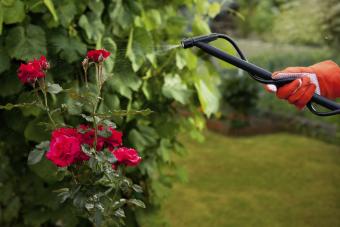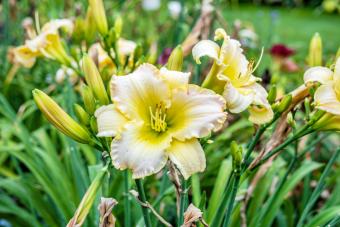
In just the past few years, we're starting to realize the impact our behavior is having on the environment. Help combat any further damage by switching your chemical insecticide and fungal killer to something all-natural. Neem oil is awesome for plants because it's naturally occurring, is safe for most vegetation, and works well to kill off both bugs and fungal infections.
What Is Neem Oil?
Neem oil is a natural oil that comes from the Neem tree, and it has a multitude of uses. The most common is as an organic pesticide to rid your beautiful garden of invasive bugs. Specifically, the oily substance works by clogging the pests' airways and suffocating them. However, it doesn't have a 100% guarantee, and you usually need to apply it for several weeks to make sure you've fully killed the infestation.
Neem Oil Is Most Effective Against Which Bugs?
Neem oil can fight off many types of bugs, including:
- Aphids
- Beetle larvae
- Caterpillars
- Gants
- Lacebugs
- Leaf hoppers
- Leafminers
- Mealy bugs
- Mites
- Thrips
- Whiteflies
Neem Oil Is Most Effective Against Which Fungai?
On top of being a go-to organic insecticide, neem oil can also help fight off some fungal and bacterial infections. The major ones include:
- Anthracnose
- Black spot
- Blight
- Botrytis
- Fire blight
- Powdery mildew
- Rust
- Scab
How to Apply Neem Oil to Outdoor Plants
Before you reach for the chemical pesticides the first time you notice the signs that some insects have infested your plants, think about using a natural alternative like neem oil. Once you notice the signs, you can follow this quick method to clear up your outdoor plants in a few weeks.
Apply the neem oil solution on your outdoor plants late in the evening to ensure that helpful bugs like bees and butterflies don't come into contact with it.
- In a pitcher, pour 1 quart of water and ¼ cup of neem oil.
- Thoroughly stir the mixture together.
- Early in the morning or late in the evening, drench the soil around the infected plants with the solution.
- Wait a week before drenching again if symptoms don't clear up.
You can also use a neem oil spray to combat smaller infections/infestations, which most people keep around to treat their indoor plants.
The Safest Way to Apply Neem Oil to Indoor Plants

With indoor plants, you've got a better chance of finding an infestation early and stopping its spread. So, once you start seeing chunks taken out of your plants or little white or brown flecks all over their leaves, whip up this simple neem oil spray.
- Grab a spray bottle, some neem oil, 1 cup of water, and some dish soap.
- Pour a tablespoon of neem oil into a cup of water.
- Add a few drops of dish soap.
- Pour the mixture into a spray bottle.
- Shake before spraying.
- Spray a test patch on the underside of one leaf to see how your plants respond.
- If all's well, coat the entire plant in the spray and reapply weekly until the infestation is gone.
Plants That Won't Tolerate Neem Oil
For how great it is, neem oil isn't a catch-all cure for every plant in your garden. While a spot test will show you just how destructive it can be to your plants, there are some that're so affected, you shouldn't get the oil anywhere near them.
- Basil
- Cilantro
- Dill
- Marjoram
- Oregano
- Parsley
- Thyme
- Arugula
- Lettuce
- Peas
- Spinach
Keep the Bugs Away With a Neem Oil Spray
Whenever you're taking care of living things, you'll go to just about any effort to make sure they survive and thrive. Treat your plant babies with the same care you do your real ones by getting rid of bug infestations and infections as quickly as possible. And neem oil is the all-natural pesticide that's here to kill just about any bug that shows up.







